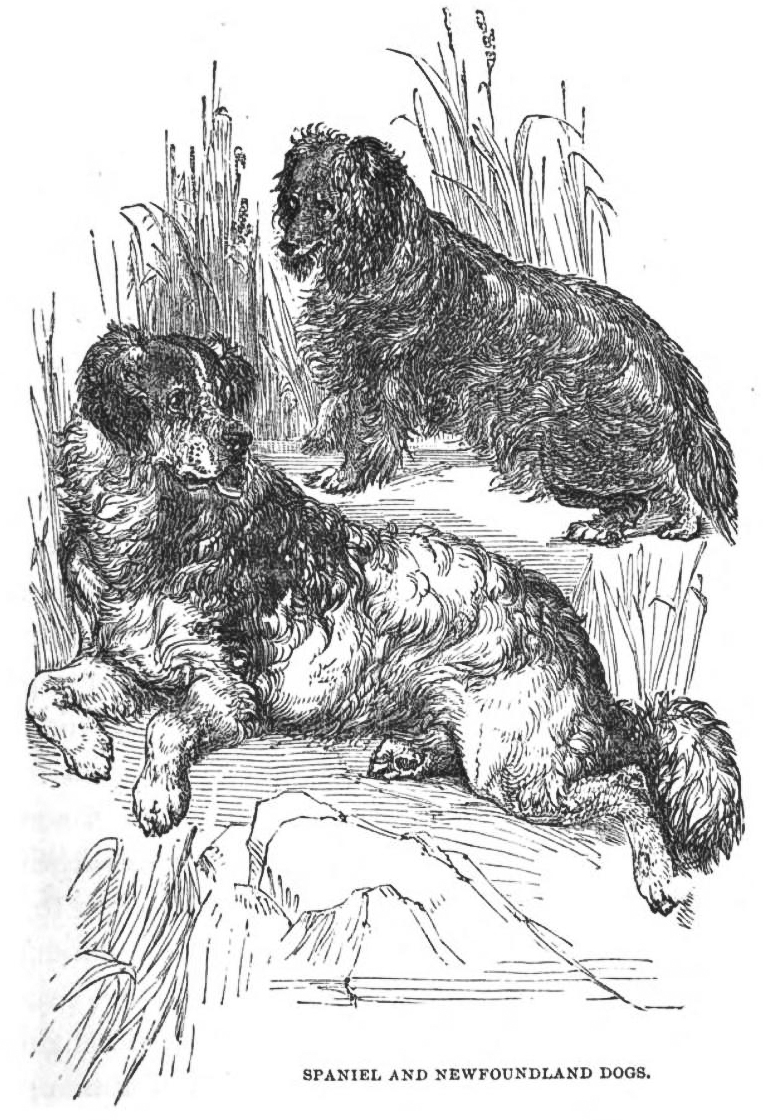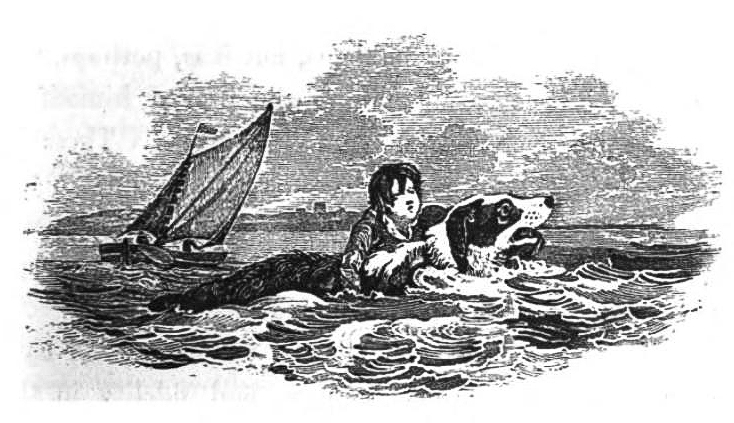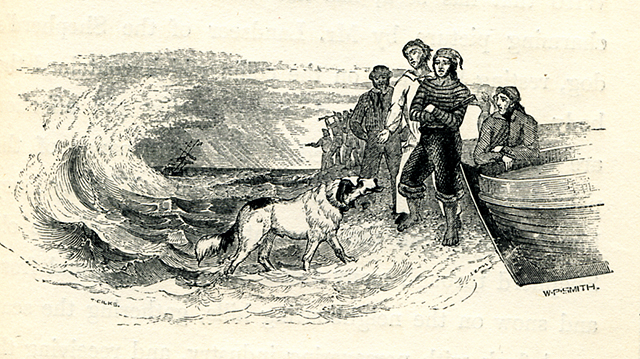"Nor will it less delight th attentive sage,
T observe that instinct which unerring guides
The brutal race, which mimics reason's lore,
And oft transcends.
The dog, whom nothing can mislead,
Must be a dog of parts indeed.
Is often wiser than his master."
Somerville


